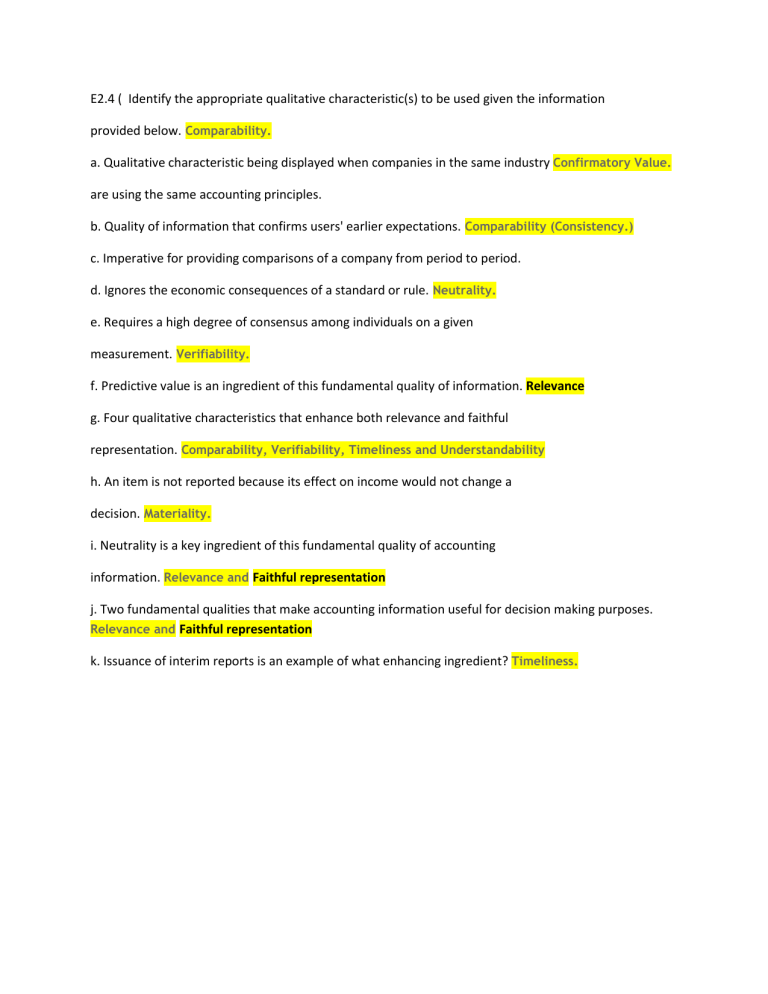
This adaptability is necessary in a dynamic business environment where new financial instruments and transactions emerge. The ongoing development of standards ensures they accommodate changes while maintaining the integrity and comparability of financial statements. In order to achieve comparability in accounting, a business needs a set of standardized accounting policies and procedures, as well as a formalized closing process. In addition, its staff must be trained in how to use these policies and procedures consistently.
Who Sets Accounting Principles and Standards?
Accounting principles differ around the world, meaning that it’s not always easy to compare the financial statements of companies from different countries. Privately held companies and nonprofit organizations also may be required by lenders or investors to file GAAP-compliant financial statements. For example, annual audited GAAP financial statements are a common loan covenant required by most banking institutions. Therefore, most companies and organizations in the U.S. comply with GAAP, even though it is not a legal requirement.
Accounting Comparability
Column (2) shows the fixed effects regression results that only include industry and year. The CompAcct coefficient is 0.035, which has significant statistical significance at the 1% level. The CompAcct coefficient is 0.020, showing a significant positive correlation at the 5% level.
What role do the IASB and FASB play in maintaining comparability?
- Standards like IFRS and GAAP provide guidelines for preparing and presenting financial statements.
- The study employs the impact of internal audit on accounting information comparability, revealing that internal audit can significantly improve the comparability of accounting information.
- This is because a well-designed and operational internal control system can provide a good foundation for risk control and information credibility, providing a reliable working foundation for internal audit.
- This insight helps in making investment choices, highlighting both opportunities and risks.
Their judgment is critical in assessing areas requiring subjective interpretation, such as estimates and valuations. Auditors must exercise professional skepticism to ensure financial statements present a true and fair view of the entity’s financial position. Accounting standards create consistency and reliability in financial reporting.
Accounting Principles: What They Are and How GAAP and IFRS Work
Financial analysts can predict more accurately when reporting standards match. These improvements show that better comparability directly benefits the capital markets. A uniform reporting system reduces complexity and the costs of reaching global markets. This creates a world where international capital flows more freely and with fewer barriers. Better comparability in financial reporting brings big benefits across financial markets. These stakeholders want financial reports that show a company’s true performance.
Internal audit quality and accounting information comparability: Evidence from China

Therefore, enterprises can further improve their internal audit system, such as strengthening the degree of management’s emphasis on the design of internal audit systems, and enhancing the independence and authority of the internal audit department. On the other hand, this article helps to improve the level of internal governance in enterprises. Suppressing agency costs and improving financial information transparency are important what is net working capital and how to calculate it paths to improve the comparability of accounting information. Therefore, enterprises should reasonably guide managers to reduce agency problems, which is the key enterprises’ benign development. In addition, our research helps to improve the comparability of corporate accounting information, thereby safeguarding the interests of stakeholders such as investors and creditors, and improving the efficiency of investor decision-making.
Finding the difference between accounting comparability and economic comparability can be tough. Changes to accounting policy must be accounted for prospectively, i.e. resulting change should not have impact on prior period financial statement comparatives. Finally, Model (10) is employed to examine the combined effect of internal audit and financial information transparency on comparability. Many firms raise additional equity financing via follow-on offerings, which often garner skepticism from investors. But, when investors place greater value on earnings as a result of high accounting comparability, firms can raise equity financing at more favorable terms and thereby leave less money on the table.
Although privately held companies are not required to abide by GAAP, publicly traded companies must file GAAP-compliant financial statements to be listed on a stock exchange. Chief officers of publicly traded companies and their independent auditors must certify that the financial statements and related notes were prepared in accordance with GAAP. Generally accepted accounting principles (GAAP) are uniform accounting principles for private companies and nonprofits in the U.S. These principles are largely set by the Financial Accounting Standards Board (FASB), an independent nonprofit organization whose members are chosen by the Financial Accounting Foundation. The International Financial Reporting Standards (IFRS) is the most widely used set of accounting principles, with adoption in 168 jurisdictions.
Firstly, we found that internal audit can improve the comparability of accounting information. Secondly, we investigated the channels through which internal audit affects comparability and found that internal audit improves comparability by reducing agency costs and enhancing financial information transparency. The study employs the impact of internal audit on accounting information comparability, revealing that internal audit can significantly improve the comparability of accounting information.
